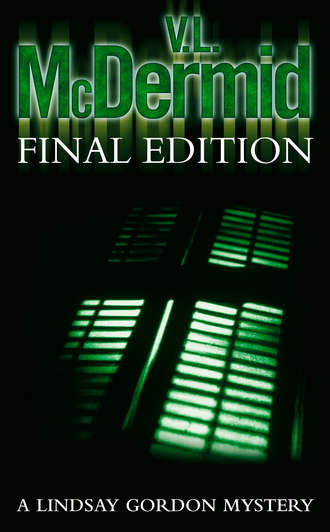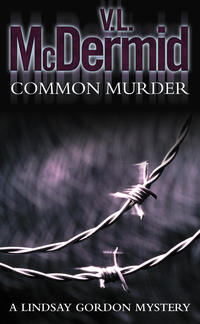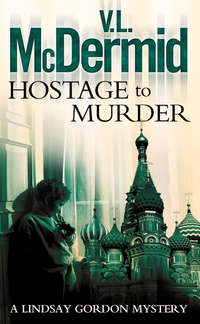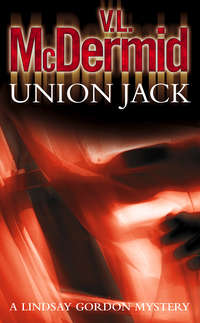
Полная версия
Final Edition
The confirmation of that decision came only two days later on her weekly trip into Venice. As usual, she caught the early steamer from Punta Sabbione and huddled against the window in the saloon as the boat chugged across the Venetian lagoon. Half an hour later, she was walking down the wide quay of the Riva Schiavoni, past the Bridge of Sighs and the Doge’s Palace, and into the Piazza San Marco, the domes of the basilica lost in the January mist that swirled around the sinking city. Lindsay had never particularly cared for the huge square. As a tourist attraction, it lived up to its promise, but precisely because it was a tourist attraction, it repelled her. It was never free from the souvenir vendors, the gaping crowds and the hordes of pigeons, encouraged by the food the tourists bought from the stall holders. The white smears of their droppings were everywhere, ruining the vista that Napoleon had called ‘the finest drawing room in Europe’.
Lindsay much preferred the other Venice, that maze of twisting alleys, canals and bridges where she could escape the crowds and wander alone, savouring the sights, smells and sounds of the real life that lurked behind the picture postcard facades. She loved watching the Venetians display the skills that living on the water had forced them to develop. On that particular January morning, after collecting her subscription copy of the Sunday Times from the central post office at the far end of the Piazza San Marco, she made her way through the narrow alleys to a wooden landing stage on the Grand Canal, pausing only to watch a builder with a heavy hod of bricks climbing a ladder precariously balanced in a motor boat. After a few minutes wait, the traghetto, one of the long gondolas that ferry passengers across the canal for a few hundred lire, crossed back to her side and she climbed aboard. The gondolier looked cold and miserable, a sharp contrast to the carefree image he would present to the summer tourists. On the other side of the canal, she plunged into a labyrinth of passages, following a familiar route to a small café near the Frari church.
The man behind the counter greeted Lindsay with a nod as she sat at a small table by the door, and busied himself with the espresso machine. He brought her usual cappuccino over to the table, exchanged a few pleasantries about the New Year, and left her to her paper. Lindsay tore open the wrapper and unfolded the paper. Before she could take in the headlines, her eye was caught by a box on the side of the page trailing the attractions in the rest of the paper. ‘Cordelia Brown: Booker Prize this time?’
Lindsay’s stomach churned and she reached instinctively for a cigarette. She hardly smoked at all these days, but this wasn’t something she could face nicotine-free. With trembling fingers, she turned to the review section. The whole of the front page was devoted to an interview with her … how should she describe Cordelia these days? Her lover? Her former lover? Her lover-in-abeyance?
At first, Lindsay had been too busy covering her tracks and establishing a safe routine to miss Cordelia. Because their relationship had hit a rough patch before Lindsay left, she’d stopped noticing all the ways in which she had relied on Cordelia. Now she was alone in a foreign country, she had begun to realise how much she had depended on her lover. The problems they’d had had all been external – the unpredictable pressures of Lindsay’s job as a national newspaper journalist, the paralysing writer’s block that had gripped Cordelia. Deep down, Lindsay had slowly come to understand, their relationship had been founded on solid ground. Knowing she had walked away from that because of her stubborn adherence to principle was the hardest thing Lindsay had had to deal with since her arrival in Italy.
But now she’d decided to go home, she also began to see how they could start to rebuild their life together. There was no way she wanted to go back into national newspaper journalism, even supposing anyone would have her. Whatever else she chose to do would provide a more straightforward life. No more shift working, late nights and unpredictable overnight stays away from home. And, judging by this article that she was deliberately postponing reading, Cordelia had cured her writer’s block.
Lindsay gulped a mouthful of hot coffee and stubbed out her cigarette. Taking a deep breath, she plunged into the words. ‘Eighteen months ago, Cordelia Brown feared she’d never write another novel,’ she read. Too true, Lindsay remembered with a sweet sadness. She had been the one caged in that beautiful London house with Cordelia while she paced the floor restlessly, ranting about her vanished talent. In vain, Lindsay had tried to reassure her, pointing to her successes as a television scriptwriter. ‘Pap and crap,’ Cordelia had spat back at her before storming out of the room to spend yet more hours motionless in front of the blank screen of her word processor.
But something had obviously happened to change all that. And it must have happened fast. For her to have a new book out now, she must have written it in a flurry of energy. It was nine months since Lindsay had left. Making a few quick mental calculations, she worked out that Cordelia must have written the first draft in the space of eight weeks at the very most. She never managed to work like that when she was with me, Lindsay thought painfully. Lighting another cigarette, she read on.
With four successful novels, a film script and three television series under her belt, the 36-year-old writer suffered a crippling failure of imagination. ‘I was in a state of blind panic,’ she revealed. ‘I felt as if I had used myself up.’
Then a friend told her the moving story of a Black South African woman who had died in police custody after battling to uncover the truth about the death of her lover. The tragic events struck a deep chord in Cordelia, who sat down the following day and wrote Ikhaya Lamaqhawe in a record six weeks.
It’s being hailed as her masterpiece, and although the Booker Prize ceremony is still ten months away, book trade insiders consider Ikhaya Lamaqhawe is certain to be a strong contender. A moving tour de force of controlled emotion, the book has astonished the literary world by its penetrating insights into the life of Black people under apartheid.
Ikhaya Lamaqhawe – which means Home Of the Heroes – tells the story of Alice Nbala, a teacher in a Black township. Her lover, Joseph Bukolo, is a mildly political student who is caught in a spiral of circumstances that leads to his disappearance. When his horribly mutilated body is found, Alice sets out to discover what happened to him. As she slowly realises that he has been a victim of the security forces, the net begins to close round her too.
Cordelia, who has never visited South Africa, admitted, ‘I was terrified that I wouldn’t get it right. I was aware of the sensitivities around this issue, and I didn’t want to be seen as another white liberal trying to hijack a subject I knew nothing about from personal experience. But although I haven’t gone through the traumas myself, I could relate very strongly to the emotions and the responses of the characters. I knew a lot about South Africa from reading and talking to Black people who had escaped from the regime, and I drew heavily on what they’d told me.’
News to me, thought Lindsay self-critically. She couldn’t remember Cordelia ever showing more than the general interest expected of a right-on feminist in the whole issue of racial oppression. Had she really known so little about what was going on in her lover’s mind?
With another deep sigh, she read on.
Not only has Cordelia got it right, she’s won plaudits from a wide spectrum of Black activists and writers, who privately have expressed their astonishment that a white writer could have written so passionate and accurate an exposé of the grim truth of life in the RSA.
Lindsay signalled for another cappuccino and quickly read on to the end of the article. To her relief, there was no mention of her and the spy scandal that had led to her exile. It would have been an obvious point for the interviewer to pick up on, given its tenuous parallels with Cordelia’s plot. Maybe it really had been the nine-day wonder Cordelia had predicted. If that was the case, then there truly was no reason why she shouldn’t go home. Or maybe it was simply that Cordelia had excised her so thoroughly from her life that she had insisted on no mention of Lindsay’s name. After all, what right had Lindsay to assume that Cordelia would want her back?
There was only one way to find out. Lindsay carefully folded up her paper, got to her feet and took the first step on the road home.
2
Glasgow, Scotland, February 1990
‘I always maintained that Glasgow was the only truly European city in Britain,’ Lindsay stated smugly as she stared out of the taxi window at the rows of sandblasted tenements glowing yellow in the streetlights. ‘But I didn’t realise till now how right I was.’
‘Listen to it,’ muttered her companion. ‘Nine months in Italy and suddenly she’s an expert on European culture.’ Eight years of friendship had given Sophie Hartley the right to snipe at Lindsay’s occasional pomposity and she never hesitated.
‘Listen,’ Lindsay argued. ‘Nothing you’ve told me about this wine bar we’re heading for sounds British to me. A place where writers, actors, lawyers and politicians go to drink good wine, eat serious food and put the world to rights sounds like café society in Paris or Vienna or Berlin, not bloody Glasgow. I know it’s three years since I lived here, but it seems to me that everything’s changed.’
Sophie smiled. ‘It’s got yuppified, if that’s what you mean. Every other car a BMW. Don’t forget, it’s the European City of Culture now,’ she teased.
‘As if I could,’ Lindsay replied ironically. ‘Every corner shop has got posters up advertising some cultural beanfeast. Everything from opera to open days, from puppets to psychodrama. I don’t even recognise the streets any more. Where there used to be nice wee bakeries selling cream doughnuts and every other sort of cholesterol-packed traditional Scottish goody, there are wholefood cafés. I tell you, Soph, I felt less of a stranger in Venice than I feel in Glasgow these days,’ she added with a sigh.
‘Well, you shouldn’t have stayed away from us so long, should you?’ said Sophie mercilessly, choosing to ignore the fact that she had been Lindsay’s first port of call after her duty visit to her parents in the Highlands.
‘I didn’t have much of a choice. I never wanted to be a bloody hero. All I wanted was to be the best journalist I could be.’
‘Don’t be so melodramatic, Lindsay. If those mad bastards in the secret service had really wanted you, they’d have come and got you, wherever you were. Spy scandals are ten a penny these days. A couple of months after you broke the story, your average 007 would have been hard pressed even to remember your name, never mind what lid you had lifted.’
‘Thanks for the vote of confidence,’ Lindsay said gloomily. ‘You make it all seem worthwhile.’
Sophie laughed. ‘Come on, Lindsay, you’re still in one piece, and you’ve got the satisfaction of knowing you did the right thing. Stop feeling sorry for yourself.’
Before Lindsay could reply, the cab driver pushed back his glass partition. ‘Youse gonny sit there blethering all night while the meter runs?’ he enquired pleasantly.
‘Sorry,’ Sophie said, pushing Lindsay out of the cab and paying the driver. Lindsay watched her as she searched her bag for her wallet. Time was being kind to Sophie, she thought. Now she had passed thirty, she seemed to have grown into her bones. In her twenties, her high cheekbones, straight nose and strong jaw had given her face a raw, unfinished look. But age had softened the impression, producing a striking image of humour and strength of character. Her curly brown hair was shot with grey now, giving an effect that other women paid their hairdressers fortunes for. Tonight, she was wearing a silky cobalt-blue jogging suit under a padded ski jacket, and Lindsay envied her style.
Sophie turned round and caught Lindsay’s scrutiny. One eyebrow twitched upwards in amusement. ‘You look like you’re sizing me up for the kill,’ she remarked wryly. ‘Come on, this is it,’ she said, pointing down an alley between the tall, Victorian buildings. A large square sign swinging in the evening air proclaimed ‘Soutar Johnnie’s’ above a painting of a cobbler working at his last. ‘We’ll have a drink and something to eat here before we meet Helen and Rosalind at the Tron Bar after their Labour Party meeting. Let’s just hope my radiopager doesn’t go off,’ she added as she led the way down the alley.
‘You’re not on call tonight, are you?’ Lindsay asked.
‘Technically, no. But if one of my patients goes into labour, they’ll probably call me in. The price of being a specialist.’ Sophie was a consultant gynaecologist at Stobhill Hospital, where she was in the vanguard of those treating the city’s growing numbers of HIV-positive women, mainly prostitutes and drug addicts.
Sophie pushed open the polished wooden door of the bar and Lindsay followed her in. She stopped on the threshold, taken aback. There had been nowhere quite like this when she had been a struggling freelance journalist in the city, and it was a shock to a system accustomed to the functional, masculine atmosphere of the old-fashioned city-centre pubs. The bar was well lit, with square tables and comfy looking chairs scattered around. Food was being eaten at several tables, and even at first glance it looked completely different from the old pub staple of pie and peas. And, to Lindsay’s astonishment, quite a few of the patrons appeared to be drinking coffee rather than alcohol. Very Continental, she thought wryly as she followed Sophie to the horseshoe-shaped mahogany bar.
Lindsay joined Sophie and studied the long list of wines scrawled on the blackboard behind the bar. Her astonishment grew as she read it. Not a single Liebfraumilch or Lambrusco to be seen! The wine list was as varied and interesting as the clientele, who ranged from a few long-haired hippies who looked like reluctant refugees from the sixties, to well-barbered young men in double-breasted suits. Sophie meanwhile had caught the attention of the barman, a huge bull of a man with a mop of thick black curls and a black patch over one eye. ‘Hi, Cosmo,’ Sophie said as he approached. ‘Give us a bottle of the Australian Chardonnay and two glasses, please.’
‘Coming up, Sophie,’ he replied, opening a tall glass-fronted fridge. ‘What’s all this, then? Buying classy bottles of wine for strange women? Good gossip! Wait till the Sisters of Treachery get to hear about this!’
Sophie grinned as she paid for the wine and picked it up. ‘If they do, I’ll know who told them, Cosmo,’ she replied. ‘This is an old friend of mine, Lindsay Gordon. Lindsay, meet Cosmo Mackay. He owns this disreputable dive.’
‘Pleased to meet you, Lindsay. Any friend of Sophie’s stands a good chance of becoming one of my best customers. She’s never introduced me to a teetotaller yet! Are you eating tonight, by the way?’ he asked.
‘You bet,’ said Sophie.
Cosmo handed her a menu. ‘I’ll take your order in a minute. There’s plenty of tables in the back room.’ He turned away to serve another customer.
‘What was all that about?’ Lindsay demanded. ‘Who in God’s name are the Sisters of Treachery?’
‘It’s a little political joke. Cosmo’s a member of the same Constituency Labour Party as Helen and Rosalind. The party’s been split over lots of issues lately, so there’s been a lot of intriguing going on. One of the right-wingers was having a go at Helen and Rosalind one night and he called them the Sisters of Treachery. The pair of them thought it was hysterical, and the name became a sort of in-joke among the left,’ Sophie explained. ‘Now, what do you want to eat?’
Lindsay studied the menu with delight. There were all the traditional favourites like black pudding with scrambled eggs, mutton stovies and haggis. But there were also vegetarian dishes, and new variations on old themes, like spiced chicken stovies – a mixture of potatoes, onions and spiced chicken pieces. Just reading the list made her mouth water. What a change from pasta and pizza, she thought happily. Eventually she settled on haggis with mashed potatoes and turnips.
While they were waiting for Cosmo to return, Sophie turned to Lindsay and asked, ‘Have you given any more thought to what you’re going to do for a living?’
Lindsay shrugged. ‘Not really. I don’t think I can go back to being a journo, though, even if they wanted me. My heart just isn’t in it any more.’
‘You could always become a private detective. After all, you’ve solved two murders so far. I can just see you with the snap-brimmed trilby and the bottle of Jack Daniels in the desk drawer. And just think of the perks! All those beautiful blondes falling at your feet,’ Sophie teased.
Lindsay pulled a face and shook her head. ‘No thanks. I’m looking for a quiet life these days.’
‘You came to the wrong place then,’ Cosmo interrupted. ‘What can I get you ladies – sorry, women – to eat?’
Having given their order to Cosmo, Sophie steered a path through the crowded bar towards a doorway at the rear. Lindsay followed her into a remarkable room. The far wall and the sloping roof were made of glass, and the other walls were covered from floor to ceiling with plants trained over trellises. Chattering groups of people sat on white garden furniture with brightly coloured cushions. Before she had a chance to take it all in, she cannoned into Sophie who had stopped dead.
Sophie turned on her heel and tried to usher Lindsay out of the room. But she was too late. Lindsay had already spotted the reason for her abrupt, awkward halt. Sitting at a table on the far side of the room were two women, deeply engrossed in conversation. It was obvious to the most casual observer that they were a couple. She had never seen the slender blonde before. But the woman sitting opposite her was as familiar to Lindsay as her own face in the mirror. She felt her stomach lurch and fought the desperate urge to be sick. Without even realising she was doing it, she shrugged off Sophie’s restraining arm and purposefully crossed the room.
Neither of the two women registered her presence till she was only feet from their table. Even then, it was the blonde who looked up first. When she saw Lindsay, a series of reactions flashed across her face in a moment. Curiosity was overtaken by bewilderment, bewilderment by shock, and shock by a strange mixture of relief and amusement. Her companion was slower to realise they had company, since Lindsay had approached from behind her. She turned in her chair and her eyes widened. ‘Lindsay!’ she gasped, pushing her chair back and getting to her feet. She gave a nervous half-smile, apparently incapable of further speech.
‘Hello, Cordelia. Fancy meeting you here. That explains why I couldn’t find you in London,’ Lindsay said with ice in her voice.
The blonde woman got to her feet and extended a slim hand. ‘Hello, Lindsay. We’ve never met before, but I’ve heard a lot about you …’
‘I bet you have,’ Lindsay interrupted savagely, ignoring the outstretched hand.
Undaunted, the other continued. ‘I’m Claire Ogilvie. Jackie – Jackie Mitchell, that is, told me a lot about you. That’s how I came to meet Cordelia.’
‘How fascinating,’ Lindsay said with heavy sarcasm, mentally slotting Claire into place. Jackie’s girlfriend, the lawyer. Portia with a Porsche. Cordelia had obviously had her fill of working-class heroes and reverted to type, Lindsay thought furiously. In a cold voice she said, ‘Well, don’t let us interrupt your intimate little tête-à-tête. Come on, Sophie,’ she added, turning away. ‘We’ll find somewhere more congenial to eat.’
‘No, wait,’ said Cordelia, finally finding her tongue. ‘Don’t go, Lindsay.’
‘Why not? You’ve obviously not been counting the minutes till I got back, have you?’
‘I think you’re being a little unfair, Lindsay,’ Claire said. ‘Why don’t you calm down and sit down and we can discuss this like adults?’
‘Discuss what?’ Lindsay demanded, her voice rising. ‘Discuss your relationship with the woman I have just discovered is my ex-lover?’
‘Lindsay,’ Sophie said in the soothing but firm voice she’d developed years ago to deal with drunks in casualty. ‘Cool it. Either let’s go now, or else sit down and have a drink.’
Lindsay, struggling with a mixture of anger, disappointment and hurt, abruptly sat down, followed by the other three.
‘When did you get back? And where have you been?’ Cordelia asked. Even to herself, her questions sounded empty and irrelevant. But she didn’t know what else to say. Seeing Lindsay again so unexpectedly had left her floundering in a welter of emotions that she could neither separate nor identify.
‘I got back a week ago,’ Lindsay replied in weary tones. ‘I tried to phone a couple of times en route, but I kept getting the answering machine, and it didn’t seem the appropriate way to break the silence. When I got to London, I went straight to the house, but you weren’t there. I rang your mother, but she didn’t seem to know where you were. Your agent said you’d gone away for a couple of weeks, she wasn’t sure where either, so rather than hang about in London on the off-chance that you’d be back, I drove up to Yorkshire, gave Deborah her van back and collected my MG. Then I went to see my parents and came back to Glasgow. I’ve been in Italy. By myself, which is more than I can say for you,’ she added bitterly.
‘My God, you’ve got a nerve,’ Cordelia said. ‘You vanish off the face of the earth for nine bloody months and you expect to come home like the prodigal daughter and find everything exactly the way it was?’
‘Obviously I was wrong, wasn’t I? You knew exactly why I went to ground. For God’s sake, I left a letter explaining what the hell was going on. And I sent you a card to let you know I was safe.’
‘One poxy card in nine months! I could recite it from memory. “Weather stunning. Natives friendly. Hope to get over to London to see you soon, but life is hectic right now. Be patient!”’ Cordelia flashed back sarcastically.
‘I was trying to protect you. I didn’t want them leaning on you to turn me in,’ Lindsay replied defensively.
‘How noble!’ Cordelia retorted, grey eyes cloudy with anger, generous mouth uncharacteristically pursed.
‘I did what I thought was right. I didn’t expect you to jump into bed with someone else the minute my back was turned,’ Lindsay accused.
‘What the hell was I supposed to do? Answer me that! How long was I supposed to wait before I started to put my life back together again? Have you any idea how much time, energy and money I spent trying to find you? I rang everyone I could think of, I went everywhere I thought you might be. I even went to bloody New York!’
‘And how long did it take you to steal Jackie’s girlfriend?’
Both Claire and Cordelia looked shocked by Lindsay’s question. But it was Claire who collected herself first and said in conciliatory tones, ‘It wasn’t like that. I was looking for you, and a mutual friend introduced me to Cordelia, who was in Glasgow at the time, also trying to get a lead on your whereabouts. So we joined forces and spent a lot of time trying to track you down. But you made a good job of your disappearing act.’
‘And what the hell business of yours was it where I was?’ Lindsay snapped, stalling while she took in what Claire had said.
‘Jackie asked me to find you.’
‘So why couldn’t she look for me herself if she was so desperate?’ said Lindsay defiantly. She remembered Jackie Mitchell well – a hardworking, hard-bitten journalist, well capable of fighting her own battles. If Jackie had wanted to find her, she wouldn’t have delegated her mission to this toffee-nosed yuppie.
‘It’s a bit hard to scour the world for someone when you’re behind bars,’ Claire replied ironically.
‘Behind bars? You mean … in prison?’ Lindsay asked, confused.








